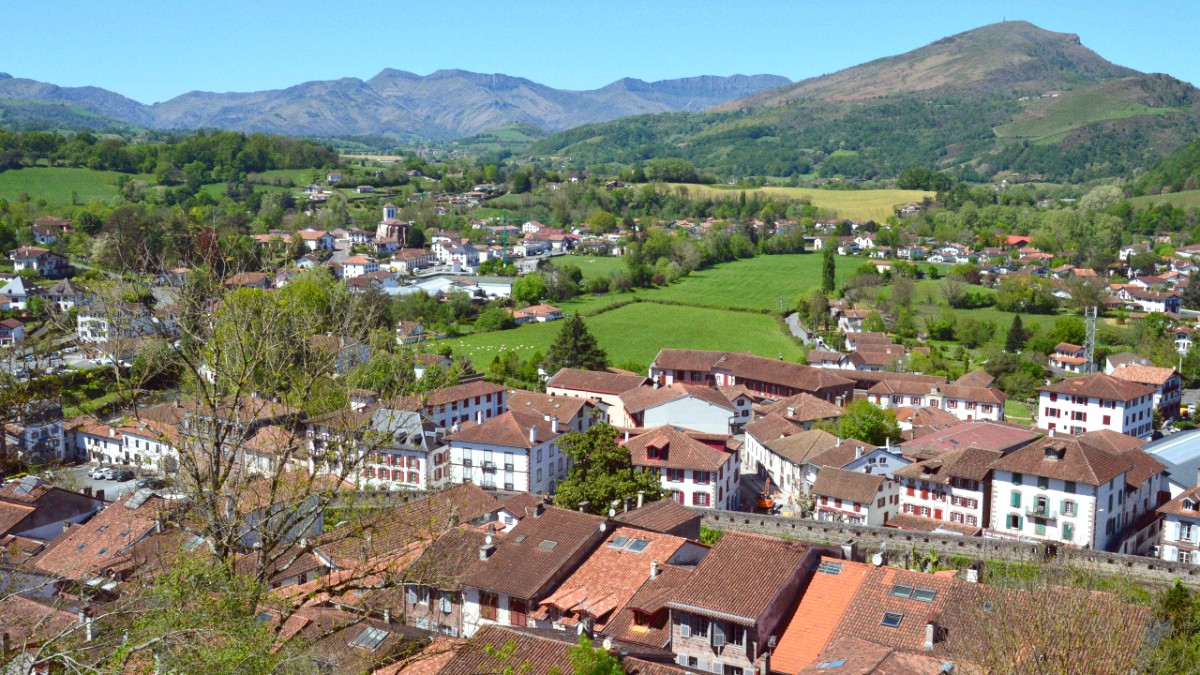
France
Travelers discover three distinct geographical zones within the French Basque Country. Labourd, the westernmost province, defines the coastline. This area features famous resort towns like Biarritz and Saint-Jean-de-Luz, along with the administrative and economic hub of Bayonne. Further inland, the landscape rises into rolling hills, transitioning towards the mountainous terrain of Basse-Navarre and Soule.
The geographical layout shapes the region's climate. Coastal areas enjoy a temperate oceanic climate, with mild winters and warm summers, and consistent rainfall. This climate nurtures lush vegetation and supports coastal activities.
Inland areas, notably in the Pyrenees foothills, experience more pronounced seasonal variations, with cooler temperatures and a higher chance of snow at higher elevations in winter. This diversity provides varied experiences for travelers, from the sophisticated beaches of Biarritz to the rugged hiking trails of Soule.
The French Basque Country is a deep and complex history, shaping its distinct identity. The people speak Euskara, a language unlike any other in Europe. Its origins remain a mystery, a linguistic isolate that survived the Indo-European migrations. This ancient tongue is a powerful symbol of Basque identity and resilience. Preservation efforts are strong, with bilingual schools and cultural initiatives safeguarding its future.
Historically, the Basque Country formed a unified cultural area, straddling the Pyrenees. For centuries, the region was largely independent, part of the ancient Kingdom of Navarre. This kingdom, founded in the early 9th century, encompassed territories on both sides of the Pyrenees. The Basques maintained a unique legal system, known as Fueros, which granted them significant self-governance, including tax exemptions and local judicial autonomy. These special rights fostered a strong sense of community.
Basque territories part of the Kingdom of Navarre with unique Fueros.
French crown asserted control over northern Basque territories over centuries.
Abolition of Fueros and regional privileges, centralizing power.
Basque sailors renowned whalers and fishermen from the Middle Ages.
Biarritz became a fashionable resort under Empress Eugénie.
The region's history links closely to its maritime heritage. From the Middle Ages, Basque sailors were renowned whalers and fishermen, venturing into the North Atlantic and even to Newfoundland. These expeditions brought wealth and shaped coastal communities. Saint-Jean-de-Luz, Ciboure, and Bayonne flourished as fishing and trading ports. This seafaring tradition contributed to the unique blend of coastal and inland cultures found today.
In the 19th century, the French Basque Country, especially Biarritz, transformed into a fashionable resort destination. Empress Eugénie, wife of Napoleon III, chose Biarritz as her summer retreat, building a grand palace that now is the iconic Hôtel du Palais. Her presence attracted European royalty and aristocracy, elevating Biarritz to an international playground. This period marked a shift towards tourism as a main industry, changing the region's economic landscape.
Despite centuries of French rule, the Basque people preserved a strong cultural identity. Their history involves the enduring spirit of a people who have fiercely guarded their heritage. This historical depth offers a rich backdrop for travelers, allowing them to connect with a living culture that values its past while looking towards the future. From ancient language to architectural styles, and from culinary traditions to sporting events like Basque pelota, history informs every aspect of a visit to this remarkable corner of France.
This historical context provides a appreciation for the unique Basque culture and its presence in modern-day France.
A quick look at the French Basque Country showcases its unique character. This overview details essential information for anyone planning a visit.
The region sits in southwestern France, part of the Pyrénées-Atlantiques department, within the larger Nouvelle-Aquitaine region. It borders Spain's Basque Country to the south and frames by the Pyrenees mountains on one side and the Atlantic Ocean on the other.
Tourism, agriculture (Espelette pepper, Bayonne ham, Ossau-Iraty cheese), fishing, and aeronautics drive the local economy.
Bayonne (hub), Biarritz (coastal resort), Saint-Jean-de-Luz (fishing port), Hendaye (border town), Espelette (pepper village), Ainhoa & Sare (beautiful villages).
Basque Pelota, traditional dances (fandango), unique cuisine, lively festivals (Fêtes de Bayonne), and popular sports like rugby and surfing.
French holds official language status and is universally spoken. Euskara, the Basque language, is spoken by a significant portion of the population, especially in inland areas, and signage often appears bilingual. Efforts to use a few Basque phrases are well-received.